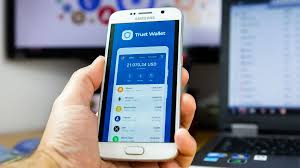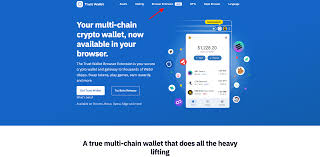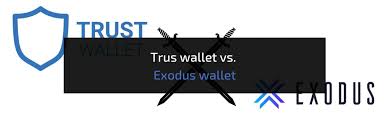
Trust Wallet is secure, but risks exist from phishing, malware, and user error. Always follow security best practices to protect your assets.
Trust Wallet Security Features
How Secure is Trust Wallet?
Trust Wallet is secure because it is non-custodial, storing private keys locally and never on external servers.
-
Private Key Control: You control your private keys.
-
No Personal Data: No personal data is stored, ensuring privacy.
-
Local Storage: Private keys are encrypted and stored on your device.
What Measures Does Trust Wallet Take to Ensure Security?
Trust Wallet uses several features to keep your assets safe:
-
Private Key Encryption: Keys are stored securely on your device.
-
Recovery Phrase: A 12-word phrase allows wallet recovery.
-
Biometric Authentication: Enable fingerprint or facial recognition for extra security.
-
Regular Updates: Updates address vulnerabilities and improve security.

Potential Risks of Using Trust Wallet
Can Trust Wallet Be Hacked?
While Trust Wallet itself is secure, there are potential risks if security measures are not followed:
-
Phishing Scams: Users may fall victim to scams that trick them into revealing their recovery phrase or private keys.
-
Malware: If your device is compromised with malware, it could jeopardize the security of your wallet.
-
Human Error: Loss or theft of the recovery phrase could result in losing access to your funds.
Are There Risks with Using Trust Wallet on Public Networks?
Yes, using Trust Wallet on public networks can increase security risks:
-
Unencrypted Connections: Public Wi-Fi may not be secure, making it easier for hackers to intercept data.
-
Man-in-the-Middle Attacks: Attackers could attempt to intercept communications between your device and Trust Wallet’s servers.
-
Data Exposure: Avoid entering sensitive information or conducting transactions on untrusted networks to protect your assets.

Trust Wallet and Phishing Scams
How to Recognize Trust Wallet Phishing Attempts
Phishing scams attempt to trick users into revealing sensitive information. Here’s how to spot them:
-
Suspicious Links: Always verify the website URL before clicking links. Official Trust Wallet links should be from “trustwallet.com” or trusted app stores.
-
Unsolicited Messages: Be cautious of messages or emails that ask for your recovery phrase or private keys.
-
Fake Support Requests: Trust Wallet never asks for private information or passwords via email or social media.
Steps to Protect Yourself from Phishing Scams
Follow these steps to protect your Trust Wallet from phishing:
-
Check URLs: Always ensure the website is legitimate and uses HTTPS.
-
Never Share Your Recovery Phrase: Your recovery phrase is private—never share it with anyone.
-
Enable Two-Factor Authentication (2FA): Use 2FA for any associated accounts or exchanges to add extra protection.
-
Use Trusted Sources: Only download Trust Wallet from official sources like the Google Play Store or Apple App Store.
Trust Wallet Backup and Recovery
Is Trust Wallet Safe if I Lose My Recovery Phrase?
If you lose your recovery phrase, you could lose access to your Trust Wallet permanently. The recovery phrase is the only way to restore your wallet, so losing it means your funds may be irretrievable.
-
No Recovery Without Phrase: Without the recovery phrase, there is no way to recover your wallet or assets.
-
No Custodial Support: Trust Wallet is non-custodial, so the support team cannot recover your funds.
How to Safely Store Your Recovery Phrase?
Store your recovery phrase securely to prevent loss or theft:
-
Write It Down: Write the recovery phrase on paper, not digitally, to avoid hacking risks.
-
Offline Storage: Store it in a safe place, like a secure lockbox or safe, away from unauthorized access.
-
Avoid Sharing: Never share your recovery phrase with anyone, even support representatives.
-
Use Multiple Copies: Consider storing the recovery phrase in multiple secure locations for added redundancy.

Trust Wallet’s Privacy Concerns
Does Trust Wallet Share My Personal Data?
No, Trust Wallet does not collect or share any personal data. It is a non-custodial wallet, meaning only you have control over your private keys and assets.
-
No Personal Data Storage: Trust Wallet does not store your personal information or transaction data.
-
No KYC Requirement: You don’t need to provide personal information or undergo KYC to use Trust Wallet.
How Does Trust Wallet Ensure User Privacy?
Trust Wallet ensures privacy through a combination of security measures:
-
Non-Custodial Wallet: You control your private keys, meaning Trust Wallet cannot access your funds.
-
No Data Collection: Trust Wallet does not track or monitor user activity.
-
Encrypted Transactions: All transactions are encrypted, keeping your data secure during transfers.
-
Decentralized Nature: As a decentralized app, Trust Wallet minimizes the risk of data exposure.

Trust Wallet’s Vulnerability to Malware
Can Malware Affect Trust Wallet?
While Trust Wallet itself is secure, malware can compromise your device, potentially affecting your wallet’s safety:
-
Keylogger Malware: Malware that records your keystrokes could capture your private keys or recovery phrase.
-
Malicious Apps: Apps or downloads from untrusted sources can contain malware that targets wallets.
-
Device Compromise: If your device is infected, it can compromise the security of all apps, including Trust Wallet.
How to Keep Trust Wallet Safe from Malware?
To protect Trust Wallet from malware, follow these security practices:
-
Use Trusted Sources: Only download apps from official sources like Google Play Store or Apple App Store.
-
Install Antivirus Software: Use reliable antivirus software to detect and remove malware from your device.
-
Avoid Suspicious Links: Don’t click on links or open attachments from unknown sources.
-
Update Regularly: Keep both your device’s operating system and Trust Wallet updated to protect against vulnerabilities.
-
Enable Two-Factor Authentication (2FA): Use 2FA for any connected exchange or service to add extra security.

Trust Wallet’s Updates and Security Patches
Does Trust Wallet Regularly Update Its Security Features?
Yes, Trust Wallet updates its security features regularly with frequent audits and risk monitoring to address vulnerabilities.
-
Security Audits: Regular audits by firms like Certik and Halborn.
-
Real-Time Monitoring: Built-in tools detect and alert users to potential threats.
How to Ensure Trust Wallet Is Always Updated for Maximum Security?
-
Enable Auto-Updates: On Android, enable auto-updates in the Google Play Store. On iOS, toggle “App Updates” in settings.
-
Manual Updates: Periodically check for updates in the app store.
-
Stay Informed: Follow Trust Wallet’s blog for the latest security updates.
Can Trust Wallet Be Hacked?
Trust Wallet is secure, but it can be compromised through phishing scams, malware, or if users mishandle their recovery phrases.
How Can I Protect My Trust Wallet?
To protect your wallet, enable biometric authentication, use a strong PIN, and store your recovery phrase securely offline.
Are There Risks of Using Trust Wallet on Public Wi-Fi?
Yes, using Trust Wallet on unsecured public Wi-Fi can expose you to man-in-the-middle attacks. Always use a secure network.
Leave a Reply